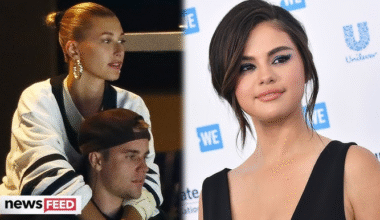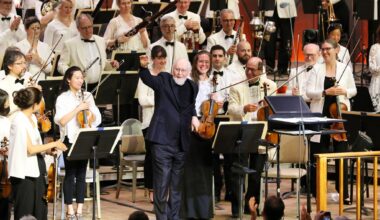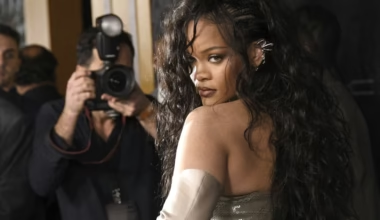When Prince walked onto the stage at the Rock & Roll Hall of Fame Induction Ceremony on March 15, 2004, few expected what was about to unfold. The moment was intended as a heartfelt tribute to George Harrison, featuring a stellar lineup: Tom Petty, Steve Winwood, Jeff Lynne, and George’s son, Dhani Harrison. But it quickly became something far greater—a moment of musical transcendence that would echo for decades.
The tribute centered around “While My Guitar Gently Weeps,” a Harrison-penned classic from The Beatles’ 1968 White Album. The song, with its melancholy tone and introspective lyrics, had long been one of Harrison’s signature works. The original track featured a guest solo by Eric Clapton, making any future interpretation a high-wire act for even the most seasoned players.
Just a week before this ceremony, Rolling Stone magazine had released its updated list of the “100 Greatest Guitarists of All Time.” Surprisingly—and controversially—Prince’s name was nowhere to be found. For someone who had mastered nearly every genre, written countless hits, and delivered explosive live shows for decades, the omission was glaring.
Rather than respond in interviews or rants, Prince responded with silence—and a guitar. As the tribute began, Petty sang the opening verse with Lynne and Winwood harmonizing beside him. Dhani Harrison stood quietly at the edge of the spotlight. The tone was reverent, respectful, and understated. But then, at the solo break, everything changed.
Prince stepped forward, crimson suit glowing under the lights. He launched into his solo with subtle bends and delicate phrasing—at first tender, then rising in intensity with each bar. Within seconds, his fingers were flying across the fretboard in a storm of melody, fire, and precision. It was as if the guitar itself had been waiting years to speak.
The performance grew more electric with each passing moment. Prince’s stage presence intensified—his body moved with the rhythm, his eyes locked in focus. Everyone else on stage became part of the background, holding the rhythm as he soared above it. Tom Petty glanced toward Dhani Harrison, who watched with wide-eyed wonder.
What made this solo remarkable wasn’t just the technique—it was the emotion. Each note carried layers of sadness, rebellion, and deep reverence. It didn’t feel rehearsed. It felt like Prince had tapped into something beyond himself, channeling George Harrison’s spirit while reminding the world who he was and what he could do.
Then came the ending. With a final run of impossible speed and soul, Prince tossed his guitar—literally—into the air. It vanished above the lights. He never looked back. He simply walked offstage with the same quiet confidence he entered with. No mic drop. No gesture. Just greatness.
The room erupted. Many in the audience stood, mouths open. Some clapped in disbelief. Legends on stage looked stunned. In an evening filled with iconic names and moments, it was Prince—uninvited to Rolling Stone’s list—who had just delivered a moment that would be replayed and studied for years.
In the days that followed, the performance began to circulate widely online. First in forums, then YouTube, then social media. Musicians praised it. Fans analyzed it. Critics revised their earlier takes. The performance had gone from a tribute to a masterclass in live artistry and emotional storytelling.
For Prince fans, it was nothing new. His guitar genius had long been known to those who saw him live—but rarely captured on mainstream television with such rawness and clarity. For others, it was a revelation: this wasn’t just a pop icon. This was a guitar god hiding in plain sight.
Dhani Harrison later reflected on the performance with deep admiration, saying he hadn’t expected Prince to take it to such a level—but that he was grateful he did. “It felt like something cosmic happened,” he said. “It was like my father was speaking through him.”
Tom Petty, a rock icon in his own right, also shared his awe. In interviews, he called it “one of the greatest things I’ve ever seen,” and admitted that they had no idea Prince was going to take it that far. But none of them stopped him. They let him go. Because everyone on that stage knew they were witnessing something eternal.
Today, Prince’s 2004 performance is widely considered the greatest improvised guitar solo ever delivered on a live stage. It is taught in music schools, dissected in reaction videos, and watched by millions annually. It remains a high point not only in Prince’s career—but in modern rock history.
Because in just a few minutes, without uttering a single word, Prince reminded the world of the power of music to transcend ego, expectation, and even death. He honored George Harrison with fire and grace—and made sure the guitar, gently or not, would never be forgotten.





